This website uses cookies for a better browsing experience.
If you agree to the use of cookies, please click the "Agree" button.
Please refer to the Privacy Policy regarding the use of cookies on this site.
The strengths The Strengths of Oiles Bearings
in bearing technology
An extensive lineup and ample ability to offer suggestions
We offer 3 types of bearings: plastic, multi-layered, and metal
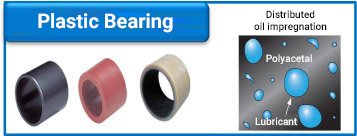
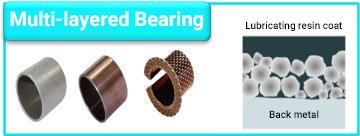
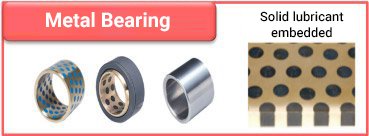
Proposing bearings and many other solutions as a development partner

Technological development
Integrated in-house support from material R&D to manufacturing
This system allows speedy development of new products and allows us to offer solutions and technical services
as a partner to meet your requirements.
PHASE 01
Material development and R&D

Development of original materials based on proprietary technologies and know-how amassed since our founding
We recently developed plant-based eco-friendly Biomass Plastic Bearings, and we lead the industry in selling high-performance bearings with a high level of biomass content.
We have also developed materials that comply with environmental laws and regulations, such as materials that comply with the Positive List for substances in contact with food under the amended Food Sanitation Act, and these materials are used in food machinery.
PHASE 02
Basic testing

Characteristics affecting strength
- Tensile strength
- Compression strength
- Bending strength
- Impact strength
- Deflection temperature under a load
- Creep properties etc.

Characteristics affecting performance
- Water absorption rate
- Water-proofing
- Oil resistance
- Grease resistance
- Calcium chloride resistance
- Coefficient of linear thermal expansion etc.

Sliding characteristics
- Coefficient of static friction
- Coefficient of kinetic friction
- Compatibility with grease
- Amount of wear
- Melting
- Noise etc.
PHASE 03
Design

Spherical joint (an example)
We also design mating components
![]() Spherical joint (our product)
Spherical joint (our product)
![]() Seat (flange)
Seat (flange)
- Suggestion of shapes and materials
![]() Flared flange
Flared flange
- Suggestion of shapes and materials
![]() Springs & bolts
Springs & bolts
- Suggestion of shapes and materials
- Suggestion of spring specifications (set load, spring constant, etc.)
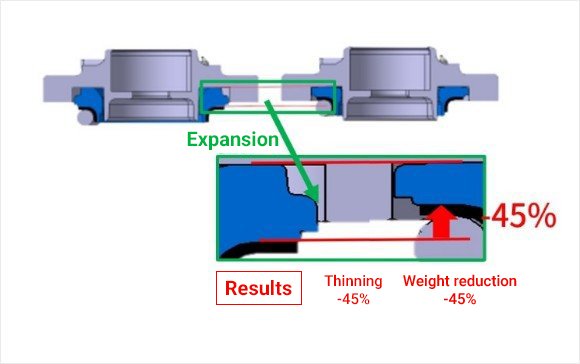
Struts (an example)
Thinner
More efficient use of space based on actual results and CAE strength analysis
Reduced use of space through specialized designs to match the shape of other parts as needed
Lighter weight
- Designs that maximize the advantages of plastic based on actual results and CAE strength analysis
PHASE 04
Bench/module testing
Evaluation of the characteristics and performance of individual products via bench testing

Torque characteristics
- Oscillating torque
- Starting torque
- Torque with temperature changes
- Torque with a radial load
- Torque under a heavy load etc.

Oscillation durability characteristics (including in muddy water)
- Oscillation durability characteristics under a constant load
- Oscillation durability characteristics under a vibrational load
- Oscillation durability characteristics in muddy water etc.

Load-bearing characteristics
- Vibration durability characteristics
- Heavy load durability characteristics
- Creep resistance characteristics etc.
Performance is evaluated under conditions close to those for an actual device

Torque characteristics
- Oscillating torque
- Starting torque
- Torque with temperature changes
- Torque with a radial load
- Torque under a heavy load etc.

Oscillation durability characteristics
- Oscillation durability characteristics under a constant load
- Checking for water entry during a high-pressure car wash etc.

Load-bearing characteristics
- Vibration durability characteristics
- Heavy load durability characteristics
- Creep resistance characteristics etc.
PHASE 05
Analysis and measurement
Analyses

Thermogravimetric analysis (TGA)
Differential scanning calorimetry (DSC)

Scanning electron microscopy (SEM)
Energy-dispersive X-ray spectroscopy (EDS)

Infrared spectroscopy (FT-IR)

X-ray fluorescence (XRF)

X-ray diffraction (XRD)

Raman spectrometry
Analysis
Flow analysis
Estimation of the weld position by checking the status of filling

Estimation of the glass fiber orientation

Strength analysis
Strength analysis is performed using values for physical properties that take flow analysis into account

Topology analysis
The optimal design is explored in terms of both product strength and a lighter weight
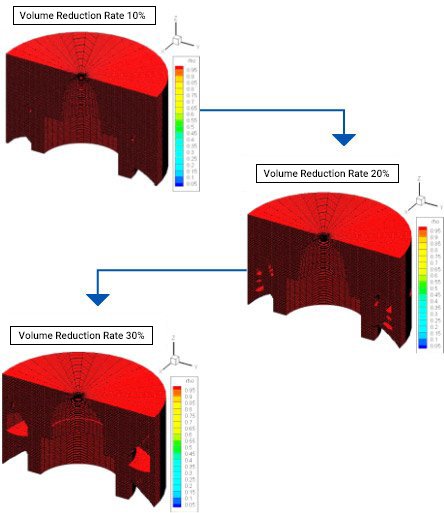
*Results of joint R&D with the Mathematical Design Laboratory, Department of Mechanical Engineering, Nagaoka University of Technology
Vibration analysis
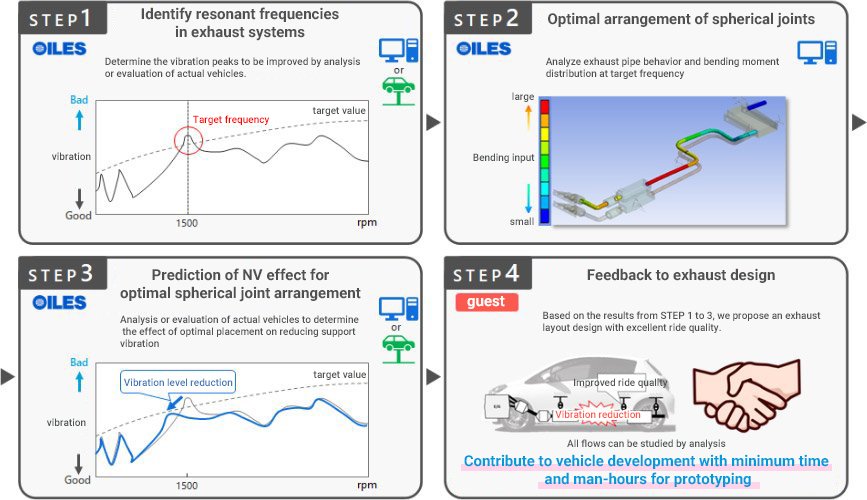
Measurement
3D measuring instruments


1-shot 3D (non-contact image measuring device)


Tribometer (multifunctional friction and wear tester)


Measurements of actual vehicles



PHASE 06
Manufacturing

Consistently supplying high quality bearings
We have an integrated production system, from material compounding to bearing manufacturing and inspection. We have production plants in five other countries with production facilities for each of a wide range of products, including plastic, multi-layered, metal, and unit products.









